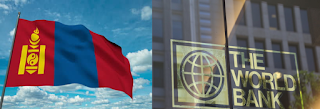A World Bank and Swiss Agency for Development and Cooperation (SDC) project recently brought together a wide range of stakeholders to discuss solutions for the most pressing issues in health and education, including increased outbreaks of communicable diseases and limited access to education services, facing people living in three Ulaanbaatar districts...
At the January 31 workshop, community and civil-society representatives from the Bayanzurkh, Chingeltei, Songinokhairkhan districts identified priorities based on local needs, along with officials from central and local governments, development partners and public-service providers.
The two-way collaboration between citizens groups and the government was supported by the joint WB–SDC project, Mainstreaming Social Accountability in Mongolia. The project supports government efforts to increase transparency and accountability, and give communities a greater say on policies affecting them.
“With today’s workshop we have moved on to the next level of CSO-government engagement,” said G. Undral, Director of Democracy Education Center NGO. “While we used to monitor specific government actions and share our evaluation through a report or a press conference, that did not necessarily result in policy changes we wanted. In contrast, CSOs and communities learned the skills and techniques to constructively engage with the government and service providers, and seek solutions to the problems together.”
Since the project’s launch in November 2015, more than 700 people representing civil society and community groups have been trained on how to address challenges through social accountability tools. The project also helps the central and local governments, as well as sector ministries to institutionalize social accountability measures so that achievements are sustained even after the project is closed.
The two-way collaboration between citizens groups and the government was supported by the joint WB–SDC project, Mainstreaming Social Accountability in Mongolia. The project supports government efforts to increase transparency and accountability, and give communities a greater say on policies affecting them.
“With today’s workshop we have moved on to the next level of CSO-government engagement,” said G. Undral, Director of Democracy Education Center NGO. “While we used to monitor specific government actions and share our evaluation through a report or a press conference, that did not necessarily result in policy changes we wanted. In contrast, CSOs and communities learned the skills and techniques to constructively engage with the government and service providers, and seek solutions to the problems together.”
Since the project’s launch in November 2015, more than 700 people representing civil society and community groups have been trained on how to address challenges through social accountability tools. The project also helps the central and local governments, as well as sector ministries to institutionalize social accountability measures so that achievements are sustained even after the project is closed.
 “The law on development policy planning, approved by the Parliament in 2015, provides a legal framework enabling CSO participation in formulating policies and evaluating their implementation. Through today’s workshop, we see this law entering into life and contributing to better social services for people through their active participation,” said James Anderson, World Bank Country Manager for Mongolia.
“The law on development policy planning, approved by the Parliament in 2015, provides a legal framework enabling CSO participation in formulating policies and evaluating their implementation. Through today’s workshop, we see this law entering into life and contributing to better social services for people through their active participation,” said James Anderson, World Bank Country Manager for Mongolia.The project is being implemented in 10 aimags and three districts of Ulaanbaatar with relatively high poverty rates. Results and best practices from these aimags and districts are envisioned to be replicated nationwide.
A website on social accountability, www.irgen-tur.mn, or “citizen-state” in Mongolian language, developed in close coordination with CSOs and the multi-stakeholder groups, provides information on project and practical resources on social accountability.

